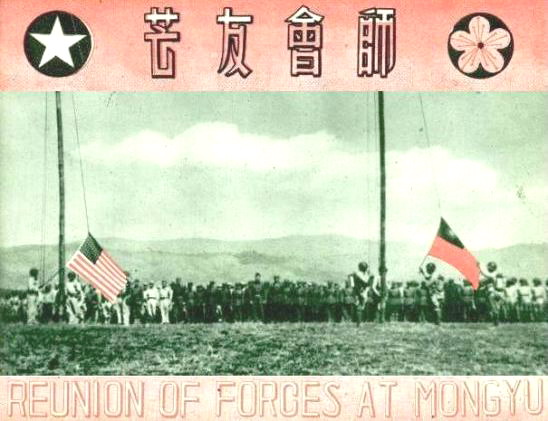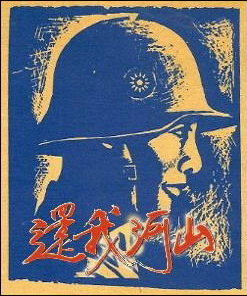Giving Up the Pen For the Sword II
- By Guest blogger
- 7 January, 2015
- No Comments

Now in his 90s, Chinese veteran Yang Cenfeng experienced all eight years of the Second Sino-Japanese War from 1937 to 1945. Below is the second and last instalment of his remarkable story. It begins in 1941, the peak of the Japanese war for many Chinese, with Academy students becoming replaces for soldiers who lost their lives or their fitness to fight. The story was featured in an article on the website of the Tianjin government, and we bring it to you in an English translation provided by the excellent Justrecently’s Weblog. Sentences in italics are the translator’s commentaries.
After two years at the academy, Huang joined the 96th Division of the Fifth Army of the Chinese Expeditionary Force as a platoon leader and a second lieutenant. The Chinese Expeditionary Force is described as a model of China cooperating directly with military allies, and also claims that this had been the first time ever that Chinese troops had left the country to fight in a war. In the three years and three months of Chinese involvement in the China Burma India Theater, China deployed some 400,000 soldiers, 200,000 of who became casualties, the article says, and describes the battles in which Yang Cenfeng took part as the fiercest in the defense of Burma / Myanmar. The battle of Taungoo is described as Yang Cenfeng’s most agonizing and most deeply-felt experience of Japanese troops’ brutality.
But because of a Japanese breakthrough at the British flank, the 200th and 96th divisions of the Chinese Expeditionary Force were surrounded, and after defending to the last for eight days and eight nights, Tonggu could still not be held. In the end, after breaking through the encirclement into the endless virgin forests of Savage Mountain, the 96th Division went through Putao in northernmost Myanmar and entered Yunnan province, returning home.
Looking back at the breakthrough at Savage Mountain, Yang Cenfeng says that rather than a way out, it was another dead end. Behind them, the enemy forces pursuing them, in front of them, the virgin forests as a no man’s land with all kinds of venomous serpents, wild animals, and disease awaiting them.
“You won’t believe it, but there were ants as long as your fingers,” Yang Cenfeng says. “Diseases claimed many lives, and it was even worse for the few women soldiers. They became unable to walk and had to lie on the naked ground to wait for death to come.”
There are people who have recorded this kind of miserable story: 1,500 wounded and ill soldiers were unable to go with the troops’ withdrawal, but didn’t want to be captured and humiliated. They set themselves on fire and became martyrs …..
In the end, with astonishing willpower, the 96th Division completed its roundabout route in 35 days, through the northern Myanmar Savage Mountain, across more than 300 kilometers, with less than half of them making their way home.
After returning to Kunming, Yang Cenfeng’s troops were deployed to protect Kunming airport, working with the famous “Flying Tigers”. Finally, after completing the northern Burma counter attack, thus reopening the international traffic line, safeguarding a stream of international support into China and driving the Japanese army out of southwestern China, after clamping down on and inflicting heavy losses on the Japanese troops in northern Myanmar and Yunnan province, creating favorable conditions for the allied forces, to open the battleground for the counter-attack on Japan.
In remarks at the end of the article, the Enorth reporter describes Yang Cenfeng as looking younger than his age (92 or 93), as saying that the party and the state were showing great concern and care for him, and that he was very satisfied. His hobbies are also mentioned, as shown in the pictures within the article. But he would never forget his painful war experiences, the brothers in arms he lost, and he would always utterly detest the atrocities committed by the Japanese invaders.
He says that his survival was luck. He therefore cherishes the era of peace, and he can’t forgive people who distort history.
As a veteran of the war of resistance against Japan, he feels encouraged by the establishment of a national day of commemoration and warns coming generations that history must not be forgotten, to be vigilant about the stirring between the dry bones of Japanese militarism, to use history as a guide, to strengthen our motherland, and to achieve the great rejuvenation of the Chinese nation.



 Copyright © 2024
Copyright © 2024
Leave a Reply